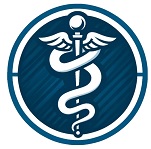The MCAT is a scaled exam; your raw score (based on how many correct answers were submitted) is translated to section scores and overall total scores ranging from 118-132; with 125 being considered midpoint.
Recent AAMC statistics indicate that an MCAT score of 525 is considered competitive for medical school admission. Of course, successful applications involve much more than simply scoring well on an exam!
What Is the MCAT?
Ryan was initially met with some resistance from his dad regarding his decision to pursue medicine, yet his perseverance enabled him to overcome obstacles and ultimately enroll in medical school. Now focused on providing clear and helpful content for other pre-med students.
Ryan suggests approaching the MCAT with confidence by approaching every question with an outlook that you will answer it correctly, to avoid getting rattled by difficult questions that cause time-wasting delays. This approach can also help build resilience during testing sessions and keep nerves calmed down during stressful moments.
Ryan believes MCAT scores matter more than GPA when applying to medical schools; however, he understands its significance for admissions purposes and acknowledges its necessity in combination with having a compelling personal statement and excellent letters of recommendation.
What Is the Format of the MCAT?
The Medical College Admission Test (MCAT) includes four sections that test candidates on various aspects of biology: biological and biochemical foundations of living systems; chemical and physical foundations of biological systems; psychological, social and biological bases for behavior and critical analysis and reasoning skills. Test takers receive five scores upon taking this exam: one score per section plus an aggregate total score.
Unlike many college admissions tests, the MCAT is content-driven – meaning it requires you to know specific bodies of information prior to taking it. Rereading materials from undergraduate courses such as biology, chemistry, physics and psychology may help prepare you for taking this exam.
What Is the Format of the CARS Section?
CARS (Critical Analysis and Reasoning Skills) section of the MCAT comprises 9 passages with 53 questions covering various humanities subjects such as literature, art, history and ethics. CARS stands out in that it does not assess your prior knowledge of science but rather evaluates your ability to analyze information and solve problems effectively.
As part of your preparation for the CARS section, it is crucial that you practice reading daily and use strategies that enable you to comprehend what authors are conveying through their passages – this may include reading aloud, highlighting text or explaining it to someone else.
What Is the Format of the Reading Comprehension Section?
The Critical Analysis and Reasoning Skills (CARS) section of the MCAT measures your comprehension, analysis, and reasoning abilities by asking questions pertaining to passages that test comprehension, analysis, and reasoning skills from various social sciences and humanities disciplines such as ethics/philosophy studies of diverse cultures/population health/etc. No prior knowledge is needed; all necessary information will be presented through passages themselves.
Reading comprehension skills are critical for medical students as it allows them to quickly process complex texts and information efficiently while becoming more creative, empathic, and insightful.
What Is the Format of the Quantitative Section?
The MCAT Math section tests test takers’ abilities to reason quantitatively and comprehend basic mathematical concepts. Strong math skills are critical for medical professionals who must interpret research studies, analyze patient data and make evidence-based decisions. The Math section covers an array of topics from algebra and geometry to statistics and probability. Calculators aren’t allowed in this test so memorizing equations is recommended; calculators won’t be accepted either! In addition, advanced topics like physics and chemistry require in-depth knowledge of chemical reactions and equations as part of the exam.
What Is the Format of the Analytical Writing Section?
AAMC describes Critical Analysis and Reasoning Skills (CARS) section as being distinct from other exams in that it does not require you to recall information or know about a specific topic; rather, it challenges you to analyze and think critically about passages written by humanities and social science writers from various humanities disciplines and social sciences fields. CARS covers an array of topics spanning ethics and philosophy studies of diverse cultures as well as population health.
Questions in the CARS section range from straightforward to complex; for instance, questions might ask you to identify an author’s thesis, main points or themes or provide examples from that text. You could even be required to recognize unstated assumptions or conclusions.
What Is the Format of the Verbal Section?
The Verbal Section of the MCAT is intended to test students’ ability to interpret and comprehend written passages that focus on social commentary, debate or opinion – often times including some degree of author bias – then evaluate these texts for their tone, evidence and strength of argumentation.
Students have 95 minutes to respond to 59 questions in this section of the exam, using passages read aloud by computer screen and answer choices appearing below them.
Pre-med students unfamiliar with writing can find this section daunting, yet with proper practice and strategy it can be easily mastered.
